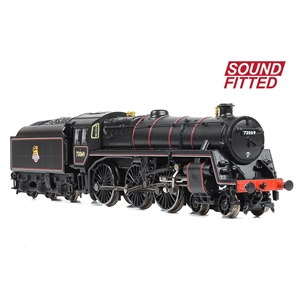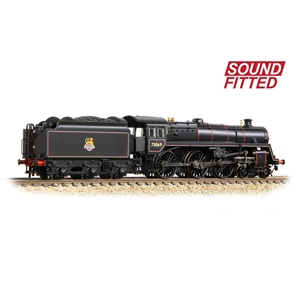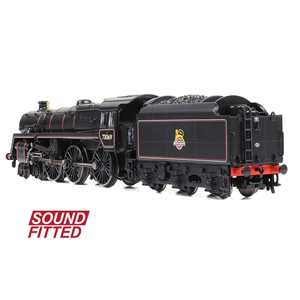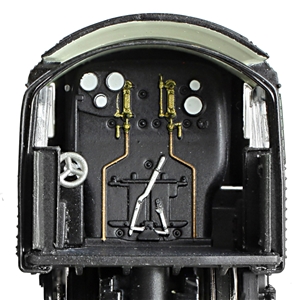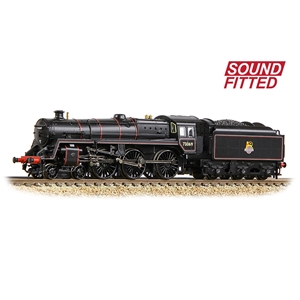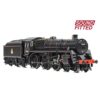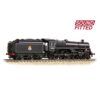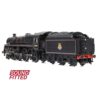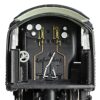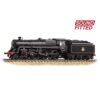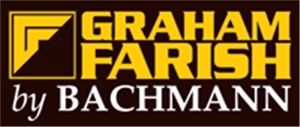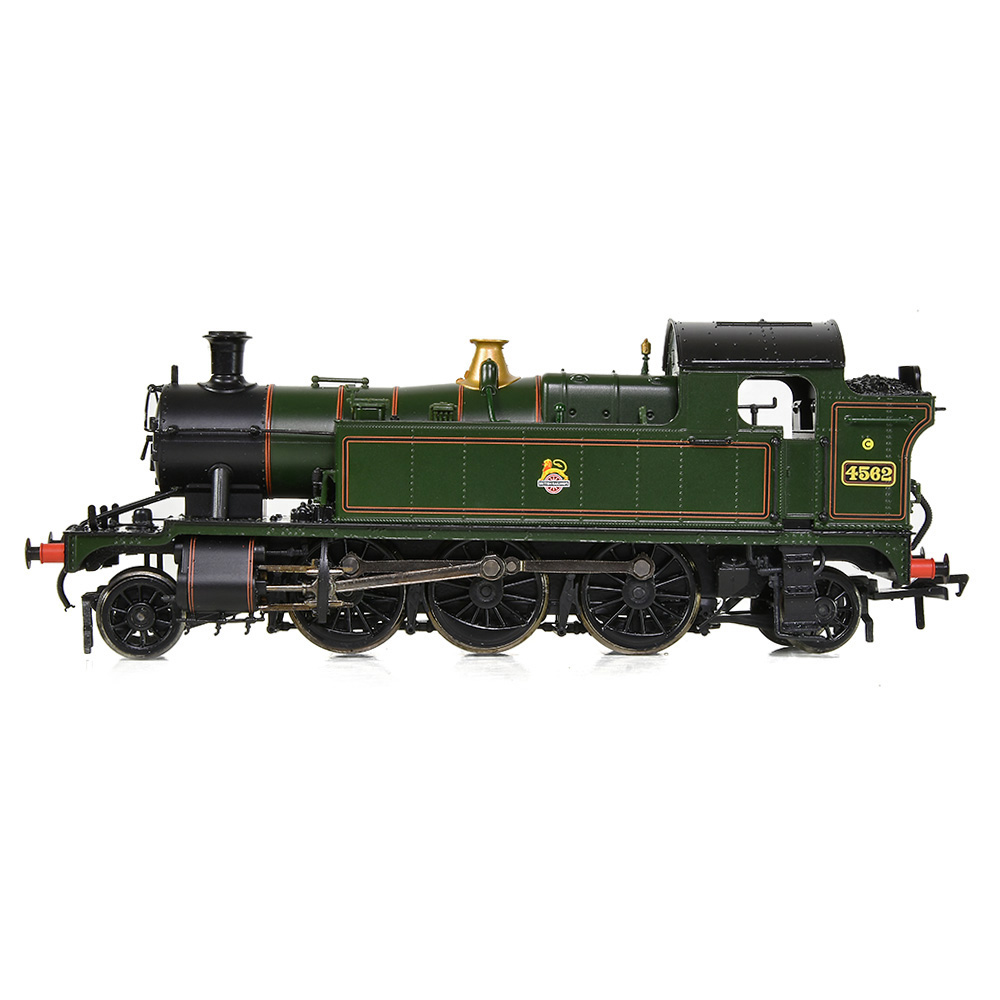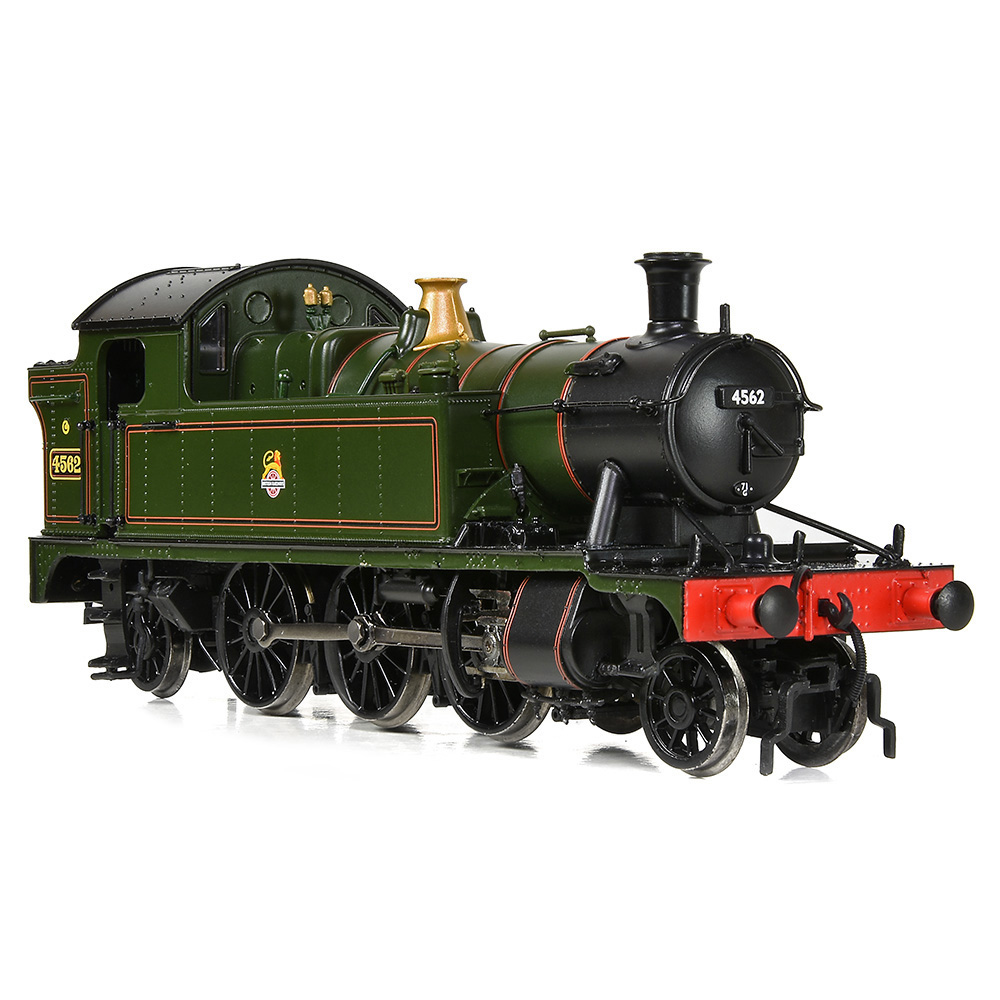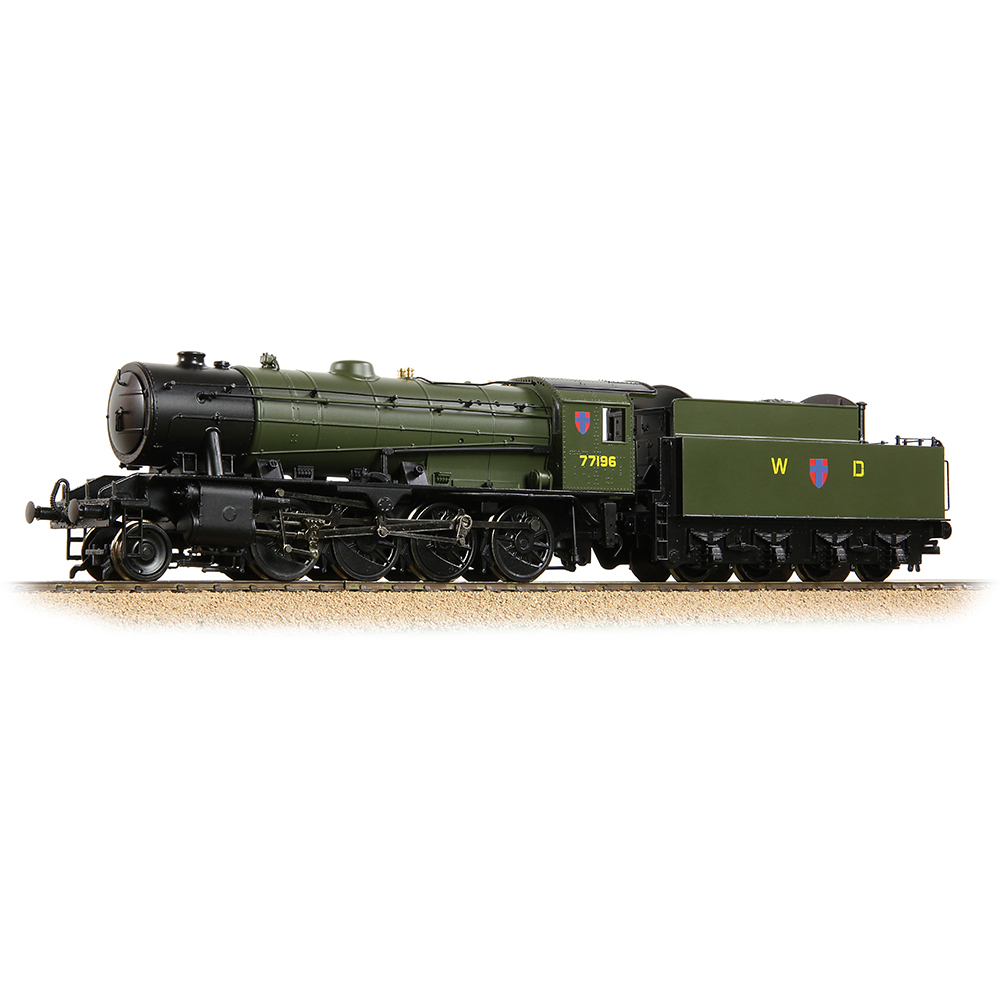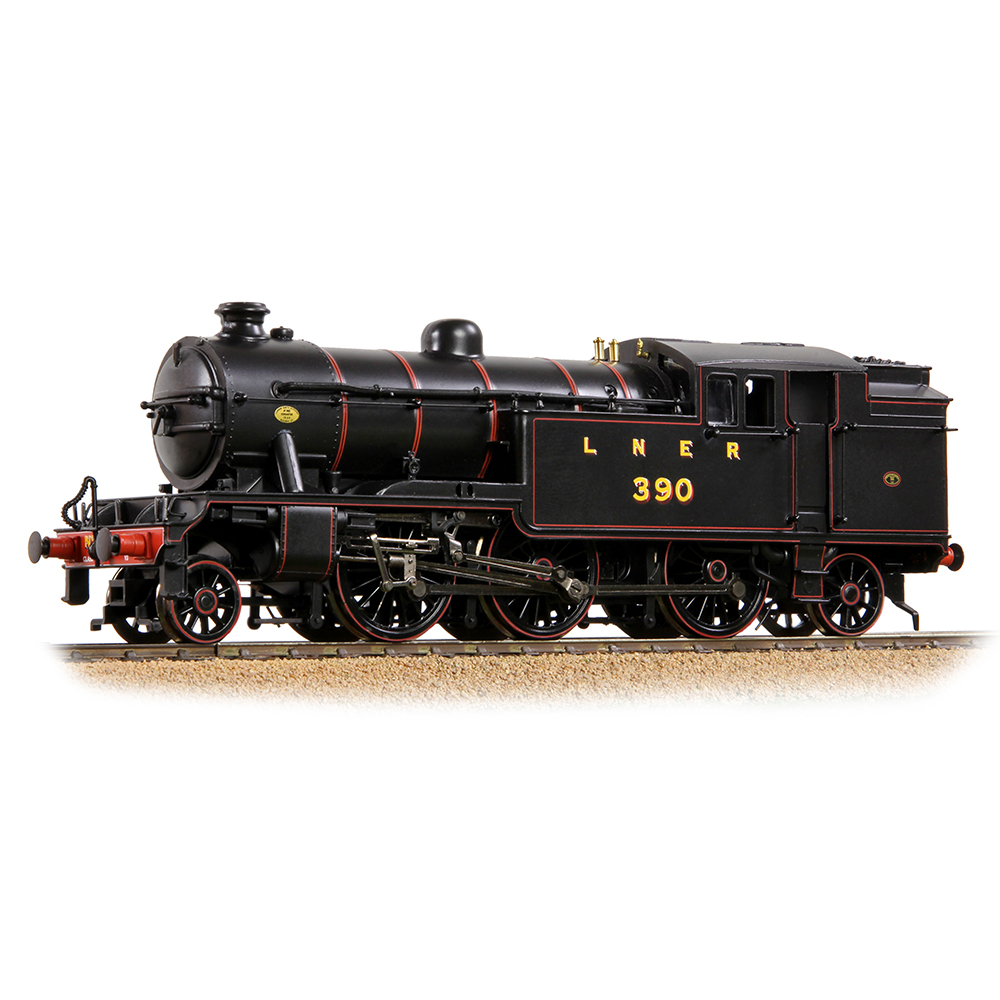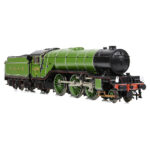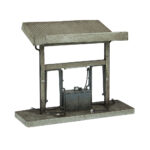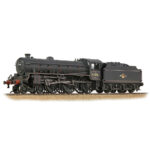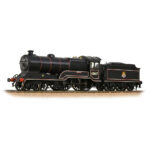With upgrades to allow SOUND FITTED models to be produced now complete, we are delighted to present this Graham Farish model of the BR Standard Class 5MT No. 73069 in BR Lined Black livery with Early Emblem. Coupled to a BR1C Tender, this model comes complete with SOUND FITTED.
The Graham Farish model brings all the power and presence of the prototype to N scale and this masterpiece in miniature certainly packs a punch when it comes to the detail, with separate metal handrails found throughout the locomotive and tender, brass chimney and safety valves and separate pipework running from below the cab to the injectors on the boiler. Inside the cab, the moulded back head detail has been decorated to pick out the individual gauges and controls, whilst below the running plate, the Walschaerts valve gear is something to behold, especially when the locomotive is in motion.
A powerful coreless motor provides drive to the centre driving wheels and each driving wheel is fitted with separate metal bearings whilst a pair of traction tyres are fitted to the rear driving wheels to aid traction. Electrical pick-up comes via all six driving wheels and all six tender wheels, with a semi-permanent loco-tender coupling system to ensure the two stay firmly coupled at all times. With SOUND FITTED, you can start enjoying authentic sound effects as soon as you place this model on your layout – whether you operate using DCC or Analogue control!
Additional traction tyres are available separately (item No. 379-424), along with the ModelMaker N Scale Loco Crankpin Box Spanner (item No. MM027) – an essential part of any N scale tool kit.
MODEL FEATURES:
- Graham Farish N Scale
- Era 4
- Pristine BR Lined Black (Early Emblem) livery
- Running No. 73069
- Coupled to a BR1C Tender
- Accessory Pack
- NEM Coupling Pockets
- Powerful Coreless Motor
- Loco-drive Mechanism
- Tender Pick-ups
- Speaker Fitted
- SOUND FITTED – Fitted with a Zimo MS590N18 Sound Decoder – See below for the function list
- Length 136mm
SOUNDS
F1 – Sound On / Sound Off
F2 – Brake (Non-Latching)
F3 – Cylinder Drain Cocks
F4 – Single Whistle (Speed Related)
F5 – Reverser
F6 – Shovelling Coal
F7 – Injectors
F8 – Blower
F9 – Flange Squeal (Speed Related)
F10 – Safety Valve
F11 – Handbrake (locomotive will not move with the handbrake applied)
F12 – Water Tank Filling
F13 – Coupling Clank
F14 – Light Engine Mode
F15 – Fade All Sounds
F16 – Guard’s Whistle
F17 – Unfitted Freight Mode
F18 – Chime Whistle (Speed Related)
F19 – Long Duration Whistle
F20 – Short Duration Whistle
F21 – ‘Going under Harry’
F22 – ‘That’s an all clear from the Guard’
F23 – Guard to Driver – Freight
F24 – ‘Guard to Driver – Passenger
F25 – Volume Down
F26 – Volume Up
Analogue Users: Normal-load running sounds, acceleration steam chuff sounds and any other automatic and randomised sounds can be enjoyed when using this model on analogue control (DC) straight from the box!
BR STANDARD 5MT HISTORY
The BR Standard Class 5MT locomotives were constructed between 1951 and 1957, under the direction of R. A. Riddles. Drawing inspiration from the LMS’s Stanier 5MT ‘Black 5s’, the ‘Standard 5’ had higher running boards and modern features like roller bearings, mechanical lubricators, self-cleaning fireboxes, hopper ashpans and rocking fire grates. In all 172 examples were built at BR’s Derby and Doncaster Works and the Class was widely distributed, with locomotives being allocated to every region of the BR network.
The 5MTs were coupled to a variety of tenders according to the needs of each region and the routes undertaken, for instance those allocated to the Southern Region received tender types with a greater water capacity than some delivered to the Midland Region, due to the lack of water troughs on the electrified Southern network. A significant engineering innovation was the fitting of the BR Caprotti valve gear to 30 members of the class – this part proved to be more mechanically efficient than the standard Walschaerts valve gear and the Caprotti locomotives were consequently more powerful for their size.
Twenty of the Southern Region locomotives were named in 1959, with each name being transferred from SR King Arthur Class locomotives that were being withdrawn. Withdrawals of the Standard 5s commenced in 1964 with just 23 surviving until 1968, when, with steam coming to an end on BR, the final examples were withdrawn. Five locomotives have however been preserved, including one fitted with Caprotti valve gear, and all have steamed in the preservation era.

